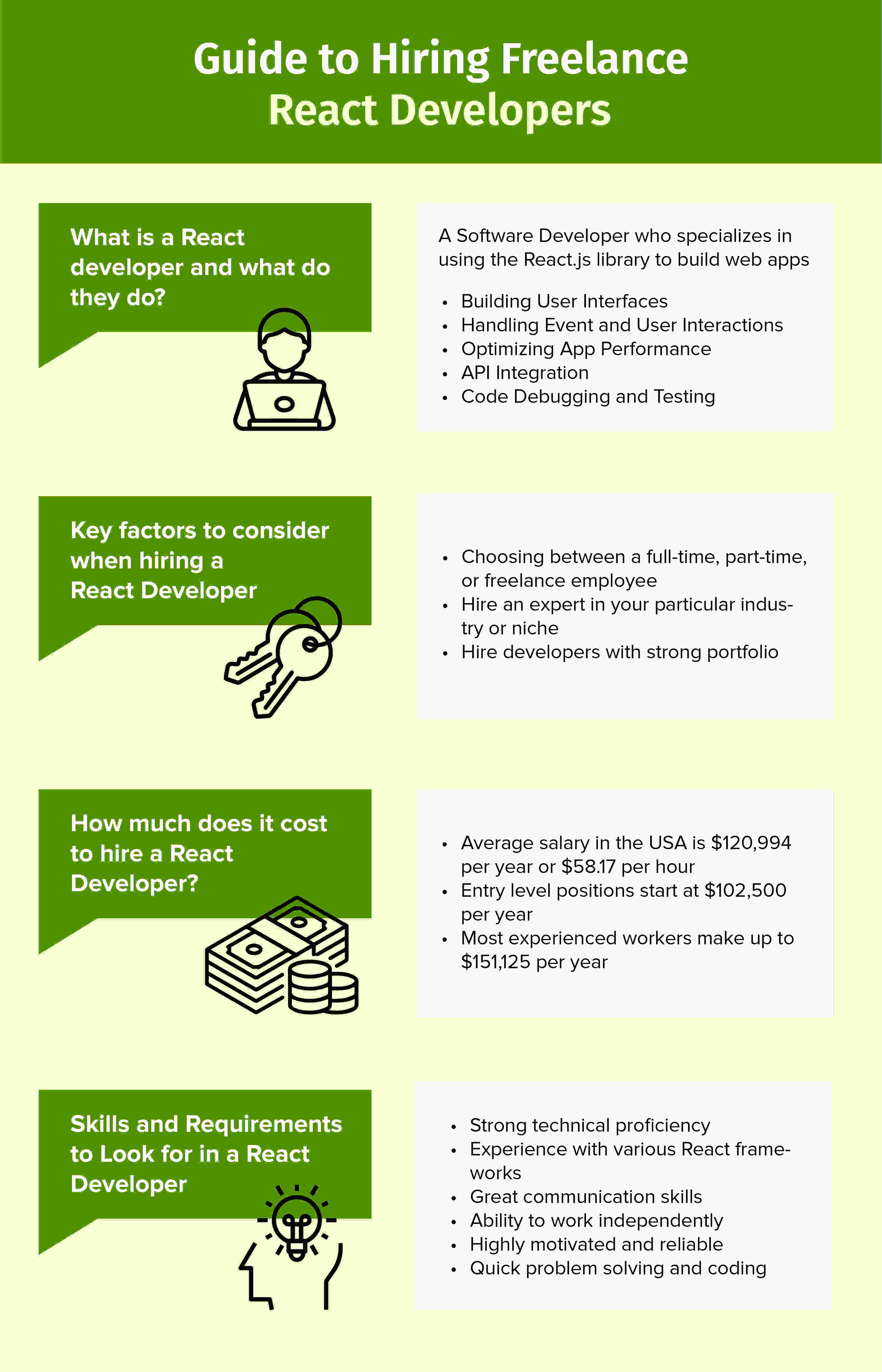What Do React Developers Do[React Developer Responsibilities]
React is a JavaScript library that’s used to build user interfaces (UIs) on the web. It was created by Facebook in 2011 and has since become one of the most popular front-end frameworks in use today. React is widely used by developers to create complex web applications, and as such, React developers are in high demand.
In this article, we’ll explore what a React developer does, the skills and knowledge required for this role, and the different career paths available to those who choose to specialize in React development.
What is React?
React is a library that enables developers to create user interfaces in JavaScript. With React, developers can build complex UIs that are easy to maintain, modify, and test. React works by breaking up the UI into small, reusable components, which can then be combined to create complex applications.
One of the main advantages of React is that it allows developers to write code in a declarative way. This means that developers can describe what they want the UI to look like, and React will handle the underlying details of rendering the UI to the browser.
React is also highly modular, which means that developers can easily reuse code across different parts of an application. This makes it easier to develop and maintain complex applications over time.
What Does a React Developer Do?
A React developer is responsible for building and maintaining complex web applications using the React library. Some of the typical tasks and projects that a React developer might work on include:
- Creating reusable React components
- Integrating React applications with API’s, libraries and tools
- Building and maintaining large-scale applications using React
- Debugging and troubleshooting issues in React code
To be successful in this role, a React developer needs to have a strong understanding of JavaScript and the React library. They also need to be comfortable working with other web development tools and technologies, such as HTML, CSS, and Node.js.
Required Skills and Knowledge
To become a successful React developer, there are a number of technical skills and knowledge areas that you’ll need to master. These include:
- JavaScript: React is built on JavaScript, so it’s essential that you have a strong foundation in this language.
- React library: You’ll need to have a deep understanding of the React library and how to use it to build complex UIs.
- HTML and CSS: While React handles most of the UI rendering, you’ll still need to have a solid understanding of HTML and CSS to be able to create reusable components and integrate them into your application.
- Node.js: Node.js is a popular server-side JavaScript runtime that’s often used in React development. You’ll need to be comfortable working with Node.js to build full-stack applications with React.
In addition to these technical skills, a successful React developer also needs to have strong problem-solving and communication skills. They should be able to work collaboratively with other developers and stakeholders, and be able to debug and troubleshoot issues in their code.
Career Paths for React Developers
There are a number of different career paths available to those who specialize in React development. Some of the most common roles include:
- Front-end developer: A front-end developer focuses on building the client-side of web applications, including the user interface and user experience.
- Full-stack developer: A full-stack developer works on both the front-end and back-end of web applications. This role requires a strong understanding of both client-side and server-side development.
- Software engineer: A software engineer is responsible for designing and building software systems, including web applications.
As a React developer, you’ll have the opportunity to work on a wide range of projects and applications, from small startups to large enterprises. With the increasing demand for React developers, there’s plenty of opportunity for career growth and advancement.
Tips for Becoming a Successful React Developer
If you’re interested in becoming a React developer, there are a number of steps you can take to get started:
- Learn the basics of JavaScript: Before diving into React, it’s important to have a strong foundation in JavaScript. Take some time to learn the basics of the language, including data types, functions, and control flow.
- Take online courses or tutorials: There are a number of great online courses and tutorials available that can help you learn React. Some popular options include React documentation, React courses on Udemy and Codecademy, and React tutorials on YouTube.
- Build your own projects: One of the best ways to learn React is to build your own projects. This will give you hands-on experience working with the library, and help you develop a strong portfolio of work to show to potential employers.
- Contribute to open-source projects: Contributing to open-source projects is a great way to build your skills and knowledge, and also to connect with other developers in the community.
- Stay up-to-date with the latest trends and technologies: The world of web development is constantly evolving, and it’s important to stay up-to-date with the latest trends and technologies. Follow industry blogs, attend conferences, and participate in online communities to stay informed.

Credits: developersforhire.com
Conclusion
Becoming a React developer can be a rewarding and fulfilling career path for those interested in web development. With the increasing demand for React developers, there’s plenty of opportunity for career growth and advancement. By mastering the technical skills required for this role, building a strong portfolio of work, and staying up-to-date with the latest trends and technologies, you can set yourself up for success in this exciting field.

